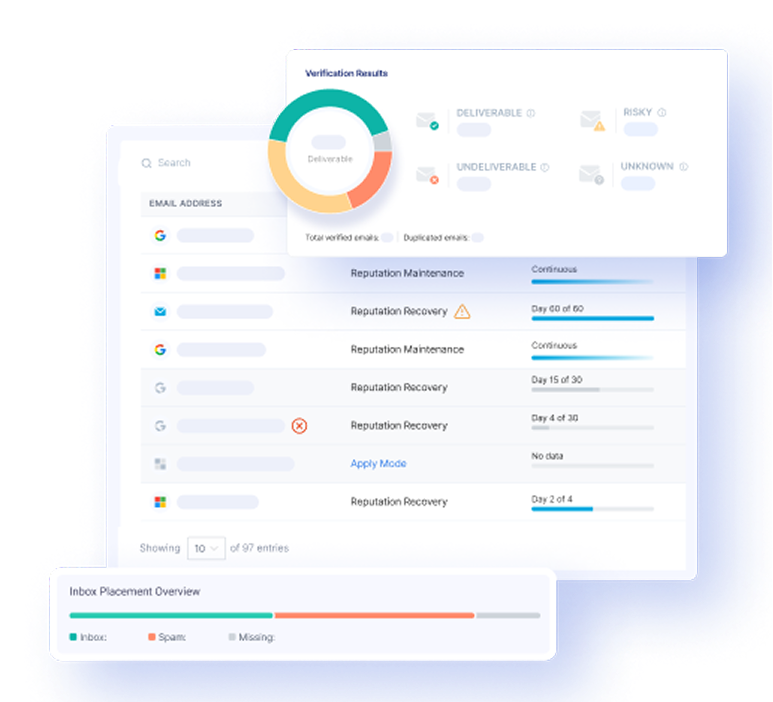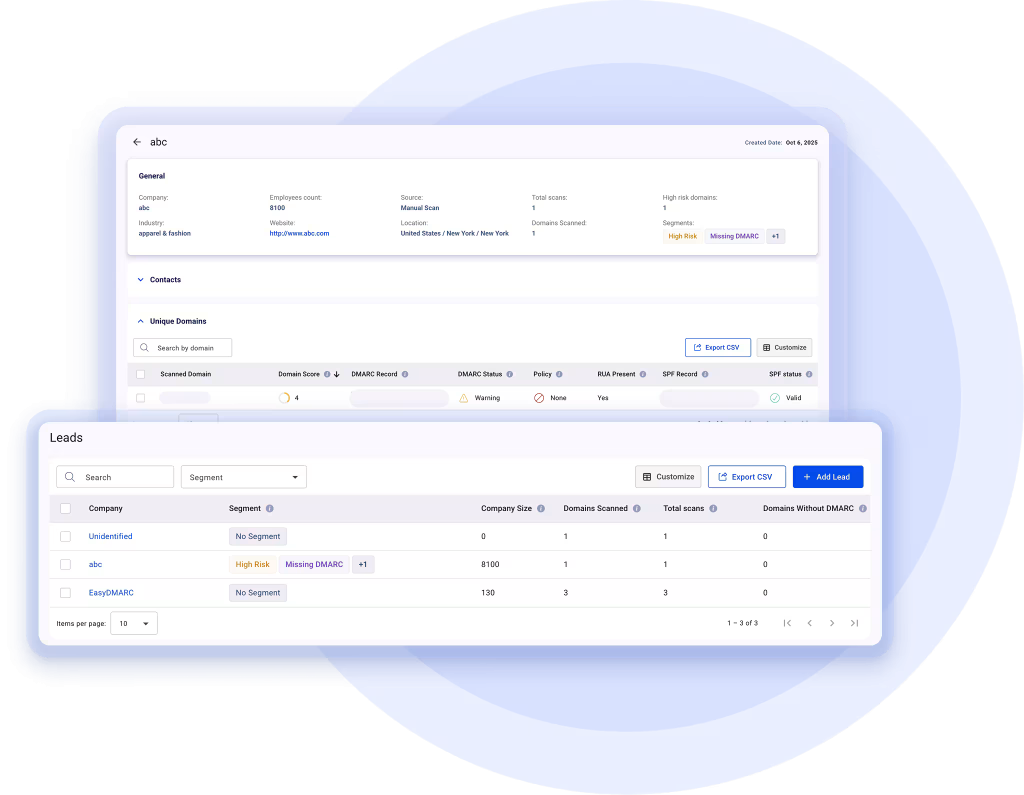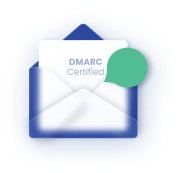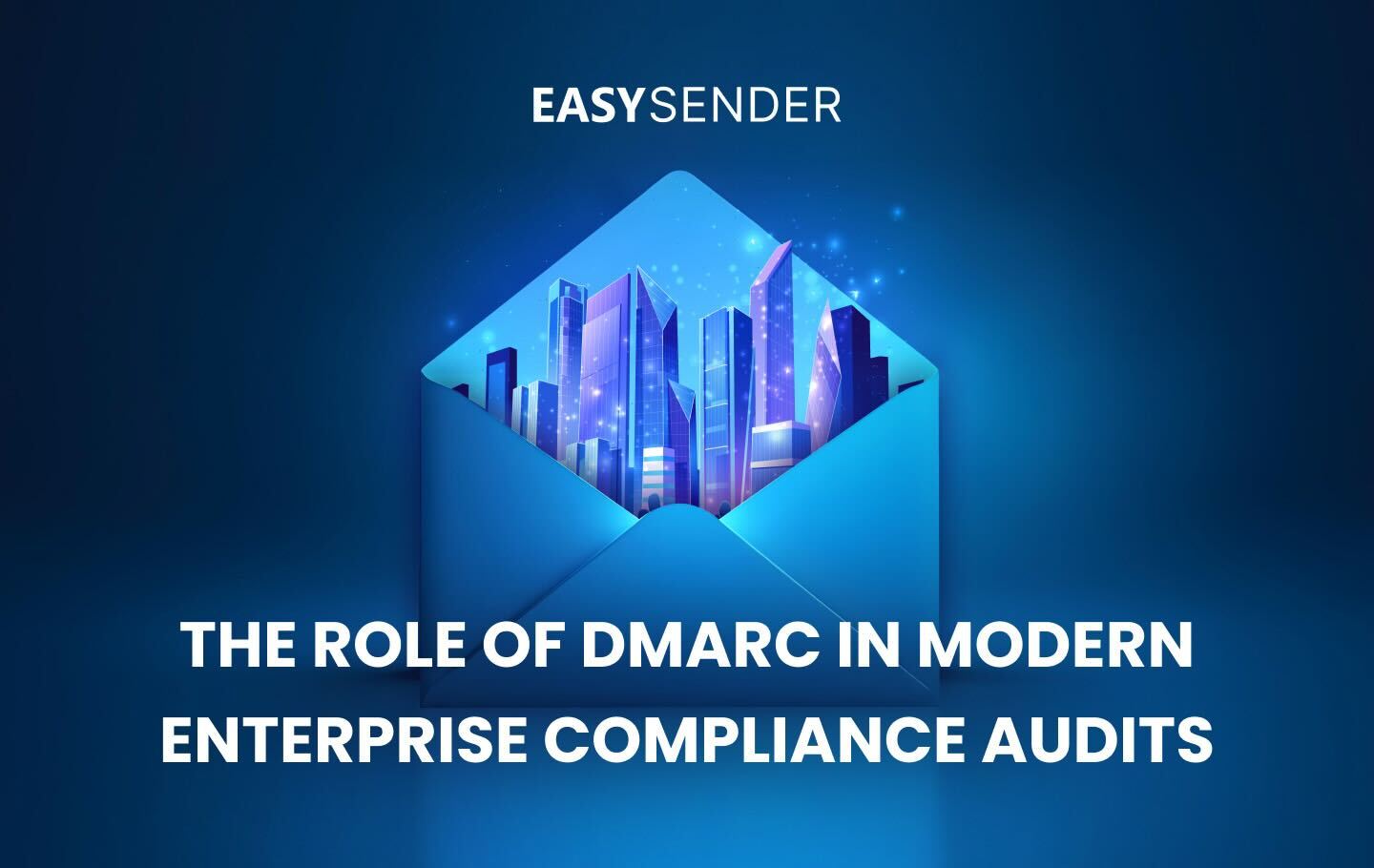Every enterprise today lives under the watchful eye of compliance. Regulations like GDPR, HIPAA, and PCI-DSS set strict standards on how data should be handled, and auditors expect proof that these standards are being followed. Companies need to show that their systems actually protect sensitive information, since it’s no longer enough to have security on paper.
Auditors often start with email security because phishing and spoofing are among the fastest ways for data to be exposed and for customer trust to be lost. To address this, compliance checklists now include email authentication as a core requirement. With the best enterprise DMARC compliance solution in place, businesses can both block these attacks and show auditors that their email systems are strong enough to meet regulatory standards.
DMARC as a Compliance Requirement for Enterprises
With the rise of phishing and spoofing, regulators expect companies to have authentication measures that prove emails really come from trusted sources. DMARC is a key part of this process, since it helps organizations show they are actively protecting both customer data and their own brand.
When DMARC is missing, a failed audit can lead to fines, extra oversight, or reputational damage that takes years to repair. That’s why more and more enterprises turn to top DMARC solutions for enterprise compliance to meet these expectations and avoid costly setbacks.

Which Tools Provide Enterprise DMARC Compliance Tracking and Reporting?
Having a DMARC setup is just as important as proving it works during a compliance audit. Auditors want to see clear reports that show how your emails are being authenticated and how you’re handling unauthorized activity, which is why many companies rely on enterprise DMARC compliance tracking and reporting tools to keep everything transparent and easy to share.
To make sure you choose the best enterprise DMARC compliance solution that can withstand any compliance audit, there are several features you should look for:
Centralized Dashboards
Instead of jumping between different tools, a single dashboard gives teams a complete view of all domains in one place. This saves time and makes it easier to spot issues quickly.
Alignment Checks
Alignment checks confirm that SPF, DKIM, and DMARC are all working together the way they should. Without alignment, emails might still slip through or fail audits, so this feature is critical.
Automated Reporting
Manually building reports can take hours. Automated reports not only cut down on effort but also ensure that the data is consistent and ready to share with auditors.
Exportable Data
Auditors need clear, well-structured evidence. The ability to export data in formats they can review easily helps keep the process smooth and professional.
Scalability for Global Teams
Large organizations often manage dozens or even hundreds of domains. A platform that can scale to this level is essential for keeping compliance under control worldwide.
This is exactly what EasyDMARC offers. Our platform combines dashboards, alignment checks, automated reporting, exportable data, scalability and extras like the DMARC report analyzer to guarantee your enterprises are secure and always ready for audits. With EasyDMARC, compliance tracking starts to feel like a natural part of keeping email systems safe and audit-ready.
What’s an All-in-One Email Compliance Solution for Global Businesses?
Enterprises that operate across different regions face many compliance rules: GDPR in Europe, HIPAA in healthcare, PCI-DSS in finance, and others. Each regulation has its own requirements, and trying to meet them with separate tools can quickly become confusing, so many organizations look for an all-in-one solution to avoid this confusion.
A strong platform helps with the day-to-day work of staying compliant. Monitoring keeps an eye on email activity, reporting makes it easier to share results with auditors in a format they can use and GDPR-ready data handling ensures that personal information is treated according to European standards, which is one of the toughest areas of compliance for global businesses.
As one of the best enterprise DMARC compliance solutions, EasyDMARC combines email authentication with compliance-focused features that fit the needs of large organizations. With our centralized controls, transparent reports and a wide range of helpful tools, teams can manage compliance faster and with less stress.
What’s the Best Email Compliance Solution for GDPR Requirements?
The best email compliance solution for GDPR is one that prevents phishing and spoofing while providing clear, auditor-ready reports. DMARC is essential because it verifies that emails truly come from authorized sources, helping organizations prove they protect personal data as required by EU regulations.
EasyDMARC simplifies GDPR compliance with tools like GDPR-ready reporting, continuous monitoring, and domain checks through our DMARC lookup. By combining protection and evidence in one platform, enterprises can confidently pass audits and demonstrate adherence to strict European standards.
How Do I Ensure Compliance With Email Regulations Using DMARC Solutions?
Since email compliance isn’t something you prepare for once and then forget about, every enterprise needs an ongoing strategy and DMARC solutions designed for businesses to keep protections in place and visible throughout the year.
Continuous Monitoring and Enforcement
Most companies start with DMARC in monitoring mode to see who is sending emails on their behalf and how those emails perform in authentication checks. Over time, the goal should be to move toward enforcement (p=reject), which blocks unauthorized messages and proves to security teams and auditors that the domain is fully protected.
Regular Reporting Reviews
DMARC reports show how emails are being used, which ones pass authentication, and where problems appear. Reviewing them often helps spot unauthorized senders or misconfigured third-party platforms before they cause trouble.
Integration with Compliance Systems
DMARC works best when connected with the tools a company already uses for compliance. Adding its reports to security dashboards or compliance software gives teams an idea of what’s happening. This “single source of truth” makes audits faster and easier to manage.
Use of Automation
Manually reviewing reports and updates takes time, especially for organizations with many domains. Automation handles the routine work like flagging issues, creating reports, and keeping policies up to date as rules change. Automation is especially useful for mid-size businesses, where IT teams are often smaller and have less time to handle manual compliance tasks.

Best Practices for DMARC Compliance in Enterprises
Long-term compliance depends on the habits your team builds. Without daily effort, even the strongest security setup can fall behind. It’s important for your team to follow proven practices and build a steady routine around email protection and compliance.
- Keep reports in one place: Centralized reporting makes it much easier to review results and share them during audits.
- Work with third parties: Many organizations use outside senders or SaaS platforms, so alignment with them is critical for smooth email delivery.
- Move to enforcement gradually: Start in monitoring mode, then work toward p=reject with guidance from experts to avoid disruptions.
- Review compliance regularly: Involve both IT and legal teams in periodic reviews to ensure security and compliance standards are met.
Making DMARC Part of Your Compliance Strategy
Every company wants to stay safe, trusted, and compliant, and DMARC helps cover all three. It protects your email, makes reporting clearer, and gives auditors the reassurance they’re looking for. More importantly, it builds long-term confidence in the way you run your business.
To make DMARC truly part of your compliance strategy, it’s important to integrate it into existing governance and security processes:
- Align with regulatory frameworks: Treat DMARC as part of your GDPR, HIPAA, or PCI-DSS readiness. By linking email authentication policies to these frameworks, you can demonstrate proactive data protection.
- Include DMARC in risk assessments: Auditors often ask how organizations identify and reduce risk. Regularly reviewing DMARC reports highlights vulnerabilities in your email ecosystem and shows that you’re addressing them.
- Collaborate across teams: Compliance isn’t just an IT concern. Legal, risk, and compliance officers should be part of the conversation so reporting aligns with enterprise-wide audit requirements.
- Plan for scalability: As your organization grows or expands globally, DMARC policies should evolve to cover new domains, business units, and third-party vendors. Building scalability into your compliance strategy avoids gaps later.
- Leverage automation: Automated alerts, report analysis, and enforcement policies reduce manual work and ensure your compliance posture remains consistent over time.
Frequently Asked Questions
The best tools for enterprise DMARC compliance are those that centralize monitoring, automate reporting, and give auditors clear evidence that email systems meet regulatory standards. EasyDMARC provides exactly that, with dashboards that track all domains in one place, alignment checks for SPF/DKIM/DMARC, and automated reports that can be exported for compliance reviews.
Enterprises also benefit from EasyDMARC’s scalability which allows businesses to manage a few domains or hundreds, the platform keeps everything transparent and audit-ready. This combination of visibility, automation, and flexibility makes it one of the most effective enterprise DMARC compliance tracking and reporting solutions available.
An all-in-one email compliance solution is a single platform that helps enterprises meet multiple regulatory requirements such as GDPR in Europe, HIPAA in healthcare, or PCI-DSS in finance without relying on separate tools for each standard. EasyDMARC delivers this unified approach by combining SPF, DKIM, and DMARC enforcement with compliance-focused reporting and monitoring and DMARC engineers on standby to help.
For global businesses, this means having one system that supports data protections across regions, generates auditor-ready evidence, and scales easily across dozens or hundreds of domains. By using EasyDMARC, enterprises avoid the complexity of fragmented tools and instead get a streamlined, all-in-one compliance solution that keeps them protected and prepared for audits worldwide.
The best email compliance solution for GDPR is one that prevents phishing and spoofing while providing clear, auditor-ready reports that prove personal data is protected. DMARC is a critical part of this, and EasyDMARC makes it easier for enterprises to meet GDPR requirements with continuous monitoring, GDPR-ready reporting, and tools like the DMARC lookup.
EasyDMARC also helps organizations maintain full visibility into domain usage and catch unauthorized activity before it becomes a compliance issue. By combining protection and evidence in one platform, businesses can show auditors that they actively safeguard customer data, which is the foundation of GDPR. This level of transparency not only ensures audit success but also strengthens customer trust across European and global markets.
The best way to ensure compliance with email regulations is to deploy SPF, DKIM, and DMARC across all domains and then use a solution that continuously monitors and reports on authentication results. EasyDMARC makes this process straightforward by combining setup, monitoring, and compliance reporting in one platform.
With EasyDMARC, enterprises can track unauthorized senders, review detailed DMARC reports, and generate auditor-ready summaries that demonstrate compliance with GDPR, HIPAA, PCI-DSS, and other standards. Automation features also reduce manual effort by flagging issues, enforcing policies, and updating reports regularly. This ensures email protections remain active year-round and compliance teams always have the evidence they need for audits.





